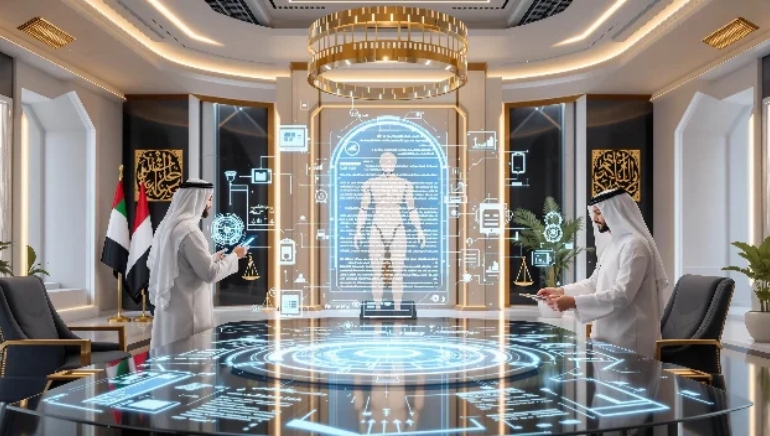DUBAI, 25 April — In a groundbreaking move, the United Arab Emirates (UAE) has announced plans to become the first nation globally to use artificial intelligence (AI) in drafting and reviewing laws. This step is part of the country’s ambitious efforts to integrate technology into all aspects of governance.
The new initiative will not only impact federal and local laws but will also extend to judicial rulings, executive procedures, and public services, as the UAE continues its drive towards full digital transformation, according to The Telegraph.
Just last week, the UAE government set up the Regulatory Intelligence Office, a cabinet unit focused on overseeing this shift in the legislative process. This is part of the nation’s broader digital strategy, aimed at embracing AI in every corner of society.
Sheikh Mohammed bin Rashid al-Maktoum, the UAE’s Vice-President and ruler of Dubai, shared his excitement about the change, saying, “This new legislative system, powered by AI, will revolutionize how we create laws, making the process faster, more precise, and ultimately more effective.”
The UAE has been a pioneer in its AI efforts. In 2017, it appointed Omar Sultan al-Olama as the world’s first AI minister, marking the beginning of the UAE Strategy for Artificial Intelligence. As an Emirati political commentator, Abdulkhaleq Abdulla explained, “The UAE is deeply committed to AI. It sees itself not just as a global financial hub but also as a leader in the digital economy.”
This is not just about staying ahead in tech; it’s also an investment in the future. The UAE is pouring resources into building a digital infrastructure that could fuel the country’s economy for decades to come. The potential is immense, with estimates suggesting that AI could add $15.7 trillion to the global market by 2030, potentially boosting the UAE’s GDP by 35% while cutting government expenses in half.
But it’s not just about using AI to speed up lawmaking. Hesham Elrafei, a solicitor and legal drafter in the UAE, pointed out that AI will fundamentally change how laws are made. “Rather than relying on the long, drawn-out debates common in traditional parliamentary systems, this approach will be faster, clearer, and more focused on addressing real issues,” he said.
AI’s role will go beyond simply drafting laws. It will analyze court judgments, identify gaps in the legal system, and suggest legislative solutions. It will also look at successful laws worldwide and adapt them to fit the unique needs of the UAE, a country with a population that represents around 200 different nationalities. This multicultural society makes clear, effective legal communication even more essential.
While countries like Brazil have tested AI for drafting laws, the UAE is going further, aiming to transform the entire legislative process. Elrafei called it a step away from outdated systems based on political compromise, and a move towards one driven by technology. “It’s a leap into a future where data, logic, and results drive the creation of laws,” he said.
However, some experts have raised concerns. Oxford University researcher Vincent Straub warned that AI systems are not flawless. “We can’t fully rely on them,” he said, pointing out their tendency to make mistakes or “hallucinate.” Meanwhile, Keegan McBride from the Oxford Internet Institute noted that the UAE’s governance model has allowed for quicker implementation of these technological changes, something that democratic nations might find harder to replicate.
In this bold venture, the UAE is setting a new standard, blending technology with governance to reshape how laws are made in the 21st century.




